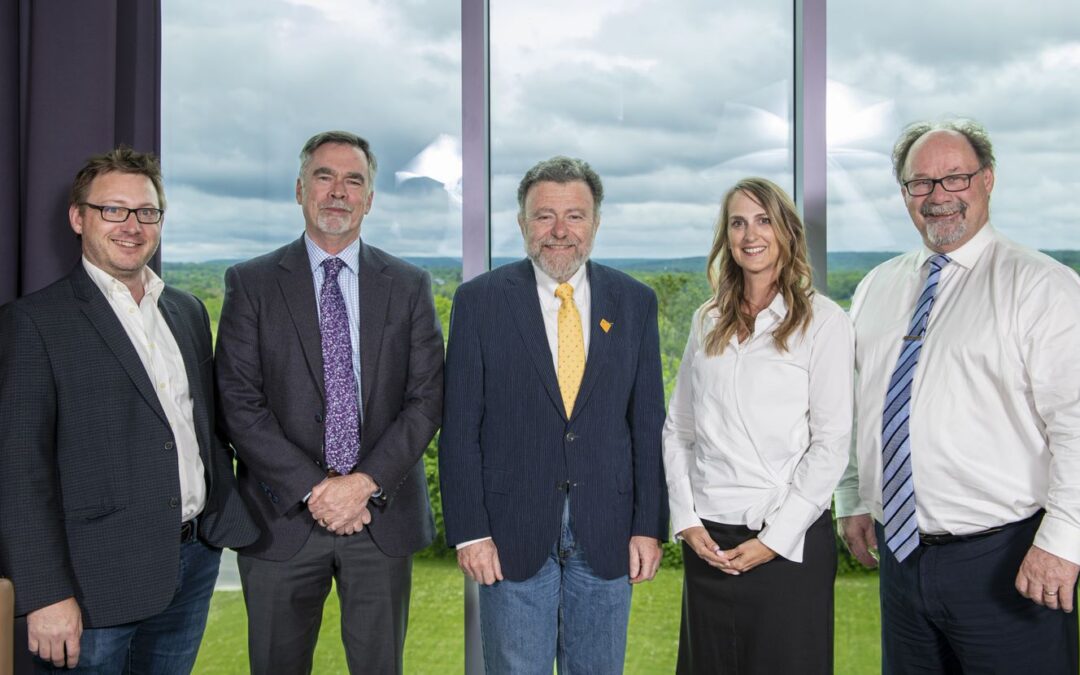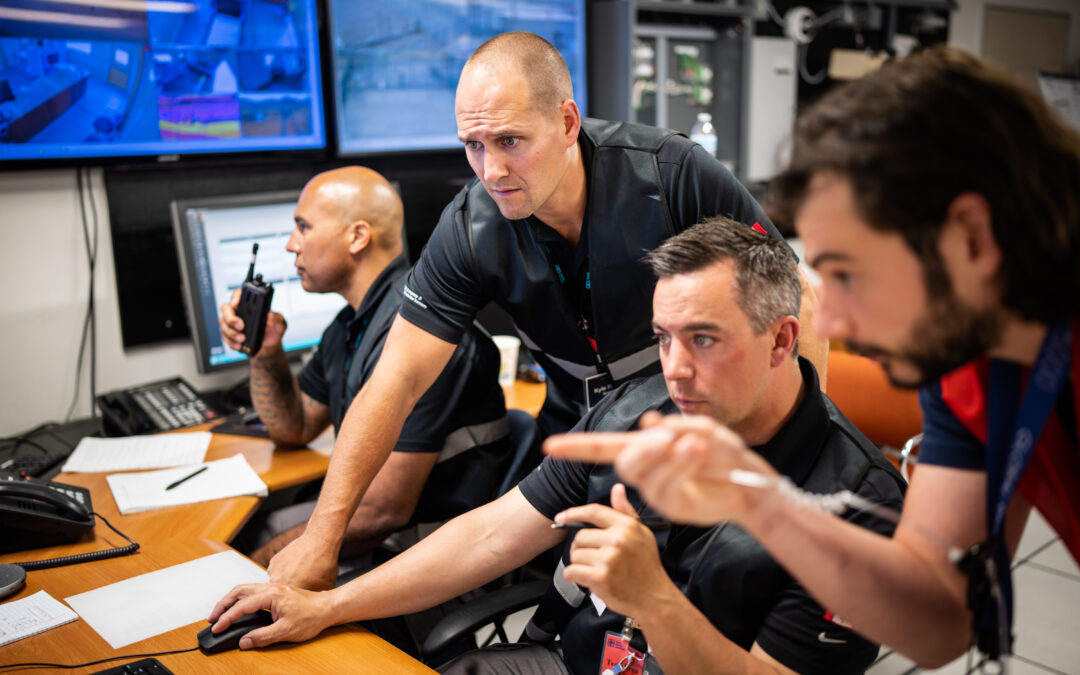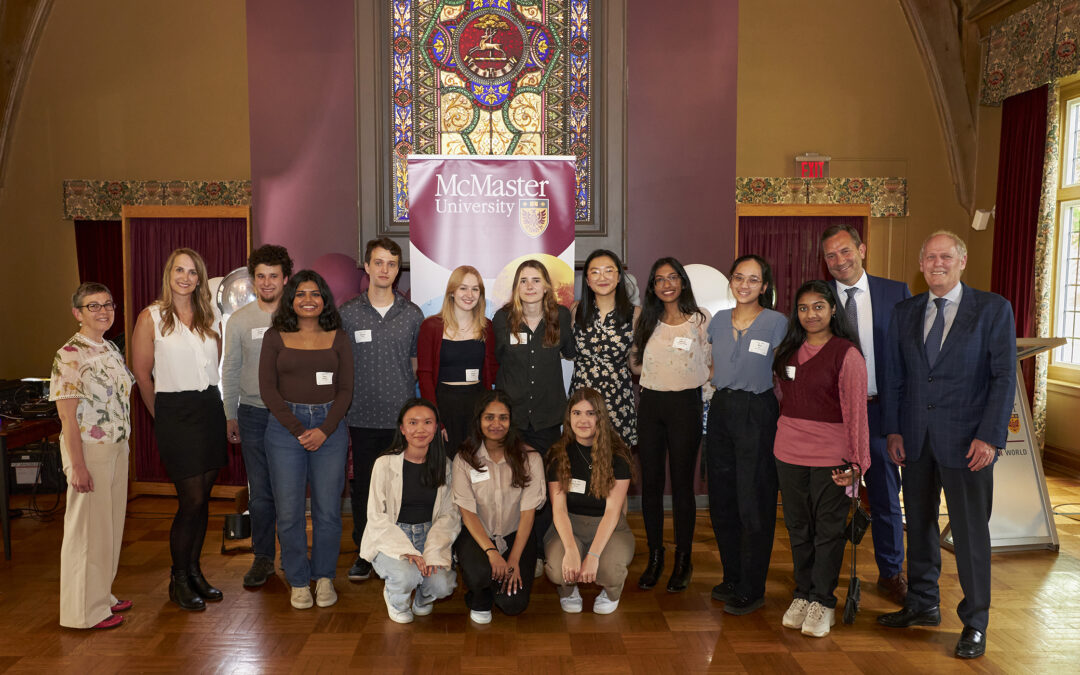
Jun 9, 2023
Atomic Energy of Canada Limited (AECL), Canada’s nuclear Crown corporation, and Canadian Nuclear Laboratories (CNL), Canada’s premier nuclear science and technology laboratory, are pleased to announce that they have signed a Memorandum of Understanding (MOU) with the University of New Brunswick (UNB) to pursue collaborative research opportunities. The MOU shows continued momentum for AECL and CNL in their efforts to develop a partnership network with Canada’s academic community, and builds on what has been an already close relationship with one of the country’s leading universities.
That relationship includes the delivery of research conducted in partnership with UNB’s Centre for Nuclear Energy Research (CNER). Last year, this ongoing collaboration culminated in the signing of a partnership agreement to pursue commercial opportunities in the nuclear power industry. This new MOU is designed to nurture even closer relations with UNB’s research community, enable knowledge mobilization, spur innovation and the development of intellectual property, and to provide solutions that address national and industry challenges.
“CNL, AECL and the University of New Brunswick have a long and rich history of collaboration that includes the development of innovative technologies and the delivery of operational support services,” commented Dr. Jeff Griffin, CNL’s Vice-President of Science and Technology. “This agreement will bring our organizations even closer together, and better leverage our existing capabilities to explore new areas of research, while expanding professional development opportunities for our personnel and students. Overall, we are excited to build on what has been a productive relationship with a long-time, trusted partner.”
“As we drive nuclear innovation for Canada, it is critical that we collaborate with Canadian universities and research organizations in order to best leverage our collective expertise and capabilities in Canada,” said Dr. Amy Gottschling, AECL’s Vice-President of Science, Technology and Commercial Oversight. “Our partnership with the University of New Brunswick is doing just that, and builds on a solid foundation of shared critical expertise in nuclear research and technology development.”
“Under the direction of Dr. William Cook, UNB’s CNER has established a fruitful partnership with CNL and AECL,” said Dr. David MaGee, UNB vice-president (research). “This partnership has already better enabled experts at UNB to contribute their knowledge to Canada’s energy production landscape. This MOU will open even broader dialogues and opportunities for researchers at UNB to play an active role in Canada’s energy landscape.”
Under terms of the agreement, the parties will explore research within defined focus areas that leverage each partner’s unique expertise and specialized facilities, including cyber security, hydrogen, medical isotopes, and small modular reactors, among other areas. The organizations will also seek out professional development opportunities within the scope of work, with the goal of offering richer, more dynamic learning experiences for their nuclear scientists, engineers, students and technical professionals. As Canada’s national nuclear laboratory, the Chalk River Laboratories is home to a wide range of advanced nuclear facilities. However, CNL also maintains facilities in close proximity to UNB, which includes its National Innovation Centre for Cybersecurity in Fredericton, New Brunswick.
As in other recent agreements, the MOU with UNB aligns with CNL’s corporate strategy, Vision 2030, which was launched last year, and which identifies what CNL views as its central role within the future Canadian nuclear landscape. Serving as a national resource to all levels of government, the nuclear industry, the broader private sector and the academic community, CNL aims to work in concert with other organizations to help advance innovative Canadian products and services towards deployment, including carbon-free energy, cancer treatments and other therapies, non-proliferation technologies and waste management solutions.

May 24, 2023
Under the auspices of the Memorandum of Understanding between Atomic Energy of Canada Limited (AECL) and the US National Nuclear Security Administration, a first-of-its-kind blended cyber-physical incident response exercise took place at Sandia National Labs in Albuquerque, New Mexico.
Organized by Canadian Nuclear Laboratories (CNL) and Sandia National Labs, the exercise enabled the participating organizations to test cyber and physical security defense systems and response capabilities in a simulated cyber and physical attack. Nearly 100 people from government and industry participated in the exercise, including representatives from AECL, the US National Nuclear Security Administration, CNL, Sandia National Labs, the Canadian Nuclear Safety Commission, Bruce Power, and Idaho National Laboratory.
With this exercise, CNL was able to verify its methodology for evaluating how well an organization responds to a cyber and physical attack. The event also helped advance the understanding of response effectiveness and advanced Canada-US collaboration in this important area of nuclear security.

May 15, 2023
McMaster University, Atomic Energy of Canada Limited (AECL) and Canadian Nuclear Laboratories (CNL) have launched a new program to enrich learning and real-world experience in nuclear research for McMaster undergraduate students.
The CNL Nuclear Undergraduate Research Experience program provides funding to allow students enrolled in Level II or above in the Faculties of Engineering and Science to develop research and technical skills in the nuclear field.
The program is part of the partnership established last year between McMaster, CNL and AECL to advance nuclear research, education and training. With the global recognition of nuclear as a clean energy source to be implemented in the fight against climate change, the demand for an experience-skilled workforce is expected to grow significantly. Programs to develop talent will help meet this challenge.
As part of the eight-week program, students will be paired with a CNL employee for mentorship opportunities and for guidance on their research projects. Research projects will focus on health, safety and security, energy and the environment, including but not limited to research in small modular reactors, hydrogen, materials characterization, medical isotopes and radiochemistry. Additionally, participants will experience two weeks of learning, including hands-on research, at Canadian Nuclear Laboratories located at the Chalk River site or at other AECL sites managed by CNL.
The Chalk River Laboratories is the largest single complex among Canada’s science and technology infrastructure. Students enrolled in the program will have access to cutting-edge technologies housed within 50+ nuclear facilities and laboratories, which use nuclear science and technologies to advance research and applications in clean energy and the environment, health sciences, safety and security.
The first cohort of the program includes seven students from the Faculty of Science and five students from the Faculty of Engineering.
Dave Tucker, McMaster’s Assistant Vice-President, Nuclear says this opportunity to work with such visionary partners will have a significant impact on the talent pipeline for the nuclear industry.
“CNL and AECL are world leaders in nuclear research and innovation, and this investment is a testament to their continued leadership in ensuring Canada’s nuclear sector remains competitive on a global stage,” he says. “I salute them on their foresight and for creating pathways for our talented and passionate students – the next generation of nuclear experts – to advance discoveries in nuclear medicine, materials, safety and technology.”
“As Canada continues to invest in nuclear science and technology to support our clean energy future, the next generation is pivotal in driving everything from research and development to design and planning,” said Dr. Jeff Griffin, CNL’s Vice-President of Science and Technology. “McMaster University students will contribute to this innovation and we are committed to helping them build their capabilities and expertise as well as support them as they determine their career paths.”
“I am most excited about the novel student experience that McMaster and CNL are creating with this program”, said Amy Gottschling, Vice-President of Science, Technology and Commercial Oversight at AECL. “Our future is in the hands of young bright minds like the students at McMaster and I have no doubt they will offer insights and benefits that will help to advance research and technologies in nuclear. We welcome them to the Chalk River Laboratories and wish them a wonderful, and personally impactful experience.”



